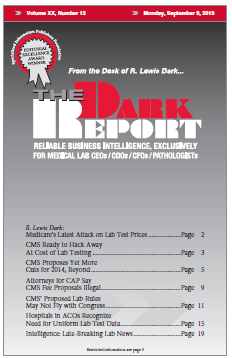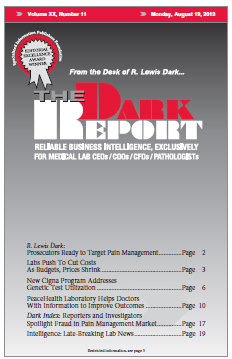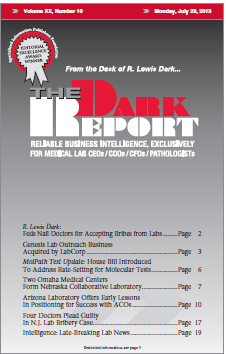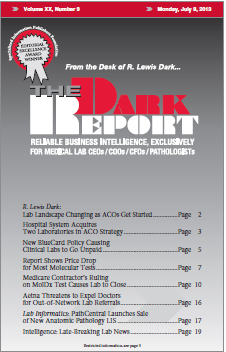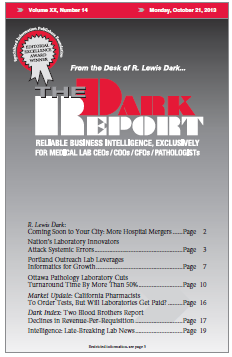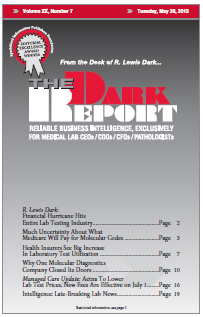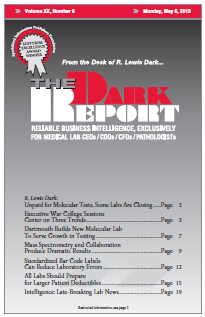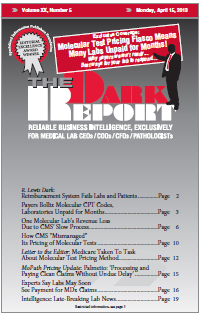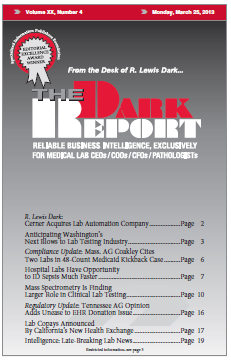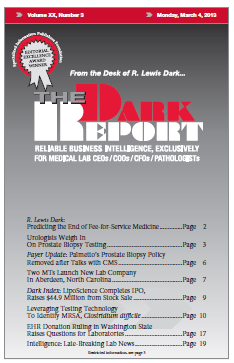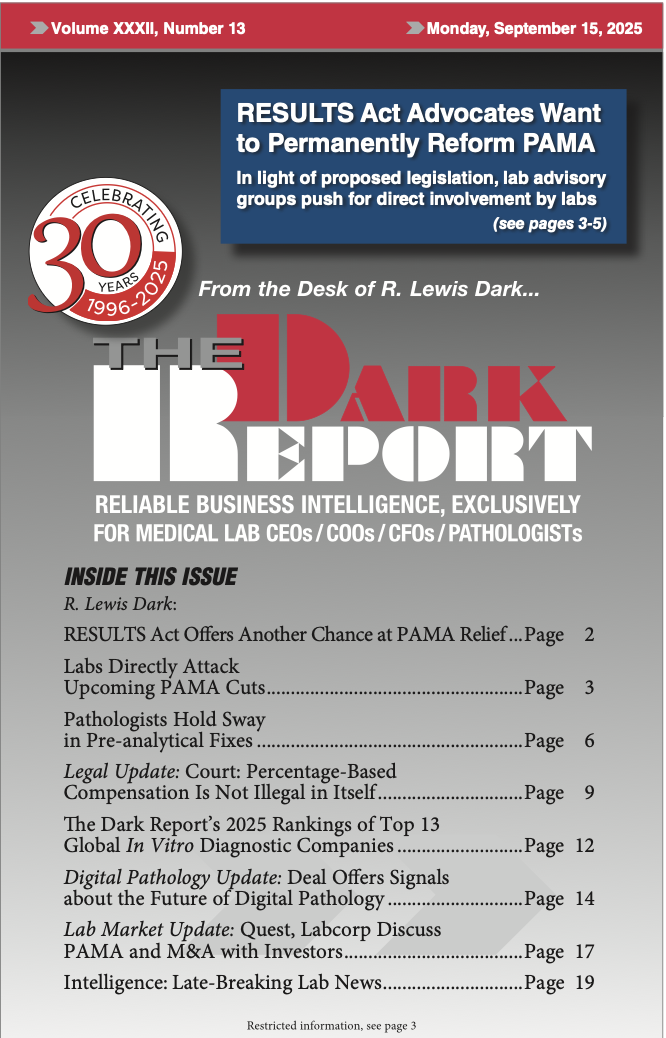Volume XX No. 12 – September 9, 2013
In this issue:
IN JULY, THE FEDERAL Centers for Medicare & Medicaid Services (CMS) published three proposed rules which would allow it to act independently of Congress to set prices for clinical laboratory testing and pathology services. Analyses of these proposed rules indicate that they would substantially reduce reimbursement paid to labs and pathologists under existing arrangements. Some industry attorneys point out that these rules are likely to go beyond the agency’s existing legal authority.


